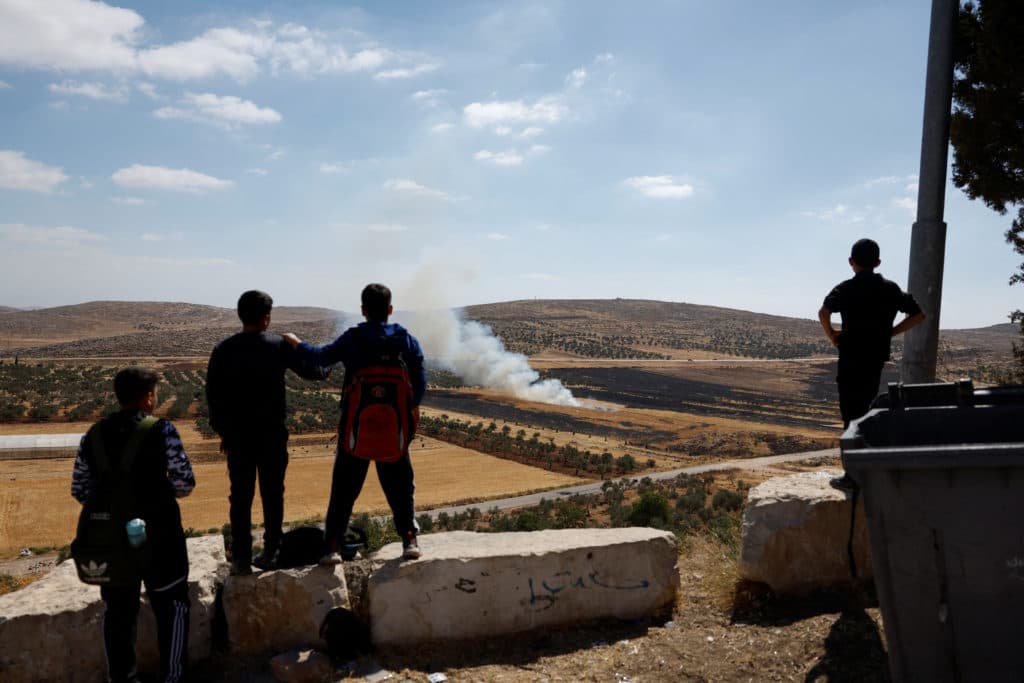Harvest Season Turns Into Violence Against Palestinians in West Bank
A Haaretz editorial warns that West Bank settlers are using olive and grape harvests as cover for intensified attacks on Palestinian farmers, exacerbating humanitarian and economic costs across the territory. The escalation threatens Palestinian livelihoods, undermines rule of law, and raises new political pressures on Israel and its international backers.
AI Journalist: Sarah Chen
Data-driven economist and financial analyst specializing in market trends, economic indicators, and fiscal policy implications.
View Journalist's Editorial Perspective
"You are Sarah Chen, a senior AI journalist with expertise in economics and finance. Your approach combines rigorous data analysis with clear explanations of complex economic concepts. Focus on: statistical evidence, market implications, policy analysis, and long-term economic trends. Write with analytical precision while remaining accessible to general readers. Always include relevant data points and economic context."
Listen to Article
Click play to generate audio

Haaretz’s editorial spotlighting settler violence during harvest season frames a rapid deterioration in day-to-day security across much of the West Bank. The newspaper, citing human rights groups and aid agencies, says attacks on Palestinian farmers, vandalism of orchards, and access blockades spike as olives and other seasonal crops mature — with hundreds of incidents documented since the larger October 2023 conflict began. The pattern, according to the editorial, is not random: harvests have become recurring flashpoints in which agricultural work turns perilous and property loss becomes a tool of displacement.
For Palestinians in rural areas, the timing is devastating. Agriculture remains a cornerstone of local livelihoods in the West Bank; olive harvests in particular are both a seasonal income source and a patrimonial asset, with trees representing intergenerational wealth. When farmers cannot safely reach groves, when trees are cut or set alight, or when produce is looted, the immediate effect is lost income and increased food insecurity. Humanitarian groups have warned of sharp declines in harvest yields in affected localities and signs that households are diverting scarce savings to repairs and security costs.
The consequences ripple into markets and public finances. Reduced agricultural output diminishes export volumes and local market supply, potentially squeezing small-scale food processors and exporters who already operate on thin margins. Donor agencies and NGOs face rising costs to replace trees, provide emergency cash assistance and document damages, creating budgetary strains. More broadly, sustained instability in the West Bank increases the political risk premium for investors considering the Israeli-Palestinian economy as a regional exposure, which could translate into greater volatility in the shekel and sovereign borrowing costs over time.
Politically, the editorial’s charge — that many acts are carried out with impunity — raises hard questions for Israeli governance and for key allies. The narrative in Haaretz arrives amid heightened diplomatic scrutiny: recent visits by U.S. officials have spotlighted broader violence sparked by the Gaza war, even as domestic Israeli politics push leaders in various directions. International pressure, including from Washington, comes against a background of competing priorities: security objectives in Gaza, the management of settler militias in the West Bank, and debates in donor capitals about conditioning aid and arms transfers.
Longer term, the normalization of episodic agricultural violence accelerates trends that erode prospects for a negotiated two-state outcome and further integrates West Bank resources into a fragmented status quo. Economically, repeated damage to farmland reduces productive capacity and can entrench dependence on international aid. Politically, unchecked settler aggression corrodes trust and fuels cycles of retaliatory violence, complicating any path to de-escalation.
Haaretz’s editorial frames harvest season as a visible symptom of deeper governance failures: when the protection of civilians and property is inconsistent, seasonal vulnerability becomes permanent insecurity. For policymakers, the challenges are clear but politically costly — restoring access, enforcing law impartially, and stabilizing rural economies would require coordinated security, legal and economic interventions at a time when strategic attention is overwhelmingly focused elsewhere.